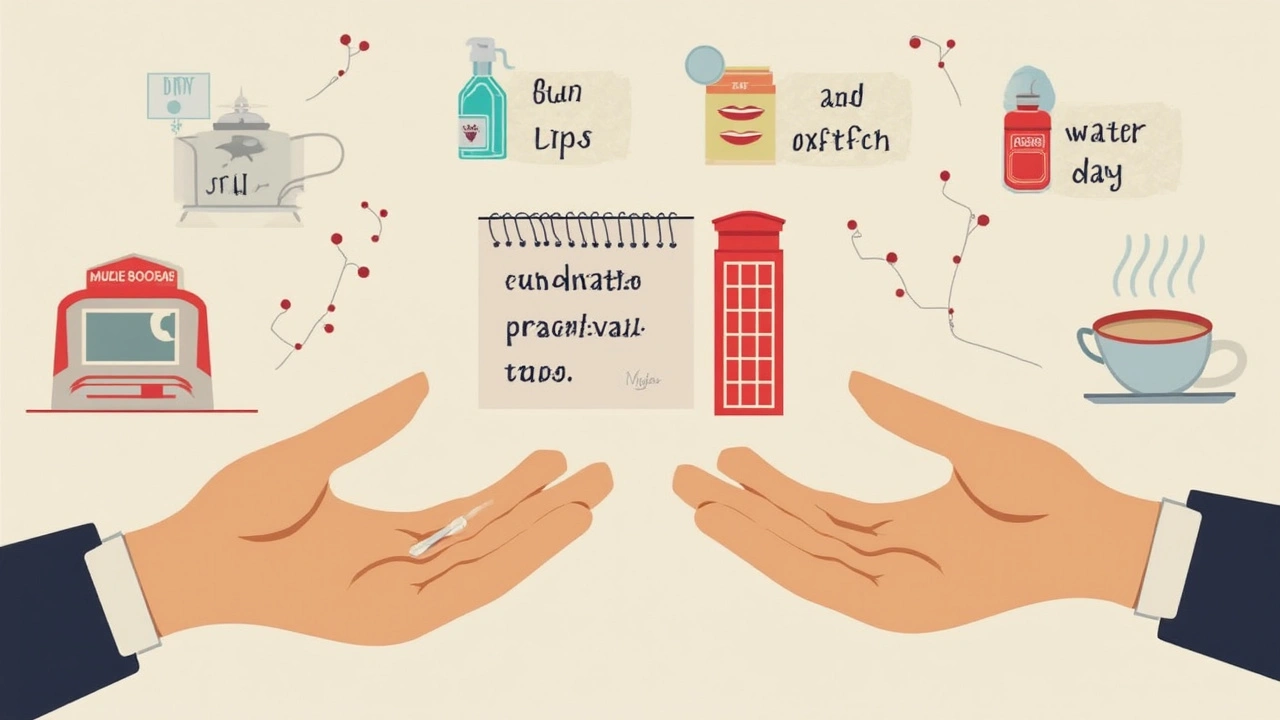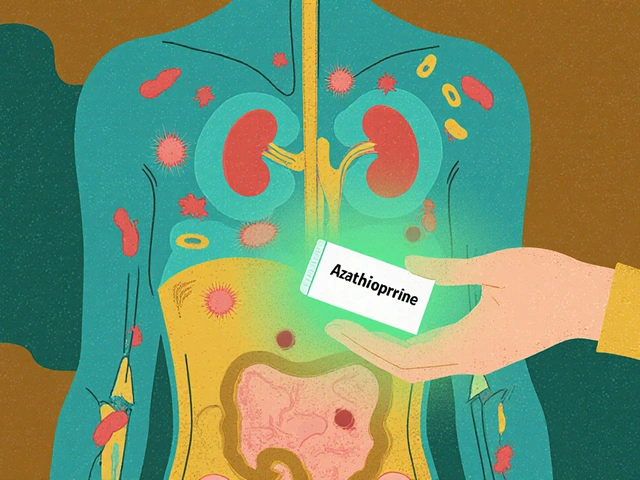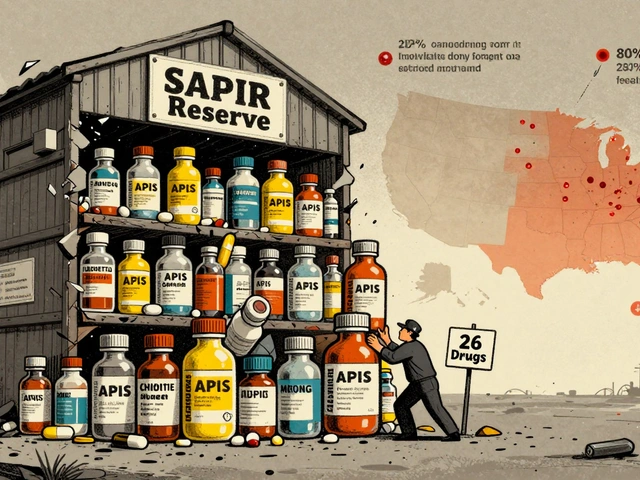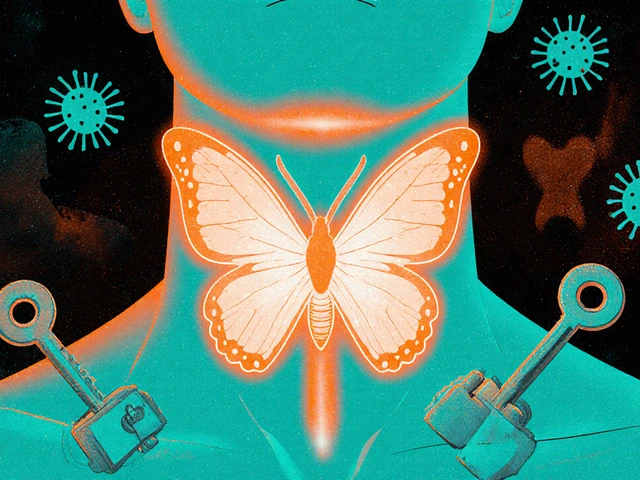Roll back the clock a bit and think about how many people have stood in front of a mirror, tracing red angry spots on their skin and wondering if anything will ever work. For a lot of folks, Accutane has been their last hope—a name that pops up in desperate late-night searches, acne forums, and doctor's offices. Whether you’ve tried every cream on the shelf or you’re just starting to look for answers, Accutane (isotretinoin) stirs up a ton of questions and even more opinions. Some call it a miracle, others fear the horror stories, but the truth? It sits somewhere in between, depending on your skin, your body, and your expectations.
What Is Accutane and How Does It Work?
Accutane isn’t actually the brand name most are using anymore, but the word has stuck. The real ingredient is isotretinoin—a powerful retinoid that’s basically a supercharged version of vitamin A. What makes it different from your standard creams (even the pricey ones) is it works from the inside out. It shrinks the actual oil glands in your skin, making them pump out way less oil. Less oil means fewer clogged pores, and for people with severe, stubborn acne, that's a game changer. But this drug isn’t passed around lightly; you can’t stroll into a pharmacy and pick it up. Only dermatologists can prescribe it, and they keep a close eye on you while you’re on it.
Strangely, nobody knows exactly how it works its magic on severe acne, but it’s been around since the early 1980s. The results are often dramatic—doctors cite a 70 to 90% clearance rate for people with serious acne. Often, a single course (about 4 to 6 months) can wipe out acne for good, which almost sounds too good to be true. And that’s probably why doctors prescribe it when nothing else has worked—creams, antibiotics, weird diets—nothing.
If you’re curious about the science: isotretinoin reduces the size and activity of your sebaceous (oil) glands, helps skin cells shed normally (so they don’t block pores), and even tamps down inflammation. You could scroll through medical journals and still come back to one simple fact: Accutane is the nuclear option when it comes to acne, and when it’s prescribed, it’s because the stakes are high.
What to Expect Before, During, and After Taking Accutane
Let’s skip the sugarcoating: Accutane is not a walk in the park and it’s not quick. Before you even start, you’ll have a long chat with your dermatologist about risks, labs, and what you need to watch for. Here in New Zealand, and around the globe, it’s standard to do blood work before you get that first pill. They want to check how your liver, cholesterol, and (for females) pregnancy status are looking, since the medication can do weird things to each of those. If you’re a woman of childbearing age, there are strict rules—double birth control, regular pregnancy tests, and lots of paperwork—because isotretinoin can cause serious birth defects.
That first month? Expect your skin to get worse before it gets better. A lot of people freak out at the dreaded "purge"—when all the deep, hidden pimples seem to surface at once. It’s rough, and there’s no way around it. Your lips will start to feel like old scuffed leather, your skin might peel or crack, and even your nose can start bleeding. People who’ve been through it swear by thick lip balm (Vaseline, Lanolips), gentle cleansers, and buckets of moisturizer. Your dermatologist will likely tell you: Slap on sunscreen every single morning because your skin turns into a vampire, burning at even the weakest sunray.
Fast-forward a couple of months in, and if you stick it out, most people start seeing clear patches break through. Expect to get monthly check-ups and blood tests, just to watch for odd side effects. Most people start at a lower dose and increase gradually if the body tolerates it well. Once you hit the end of the course (normally 16 to 24 weeks), there’s a good chance your skin will be the clearest it’s been in years. Sometimes, a small number of people need a second round; doctors say about one in five.
One cool fact, especially relevant to Kiwis: New Zealand’s public health system (Pharmac) subsidises isotretinoin if you meet certain criteria, so cost doesn’t necessarily stand in the way for severe cases.

Common Side Effects and How to Deal With Them
This is the headline that scares off a lot of people: Accutane’s side effects are no joke, even with the benefits. Chapped lips are pretty much universal—think of it as a rite of passage. But then you’ve got dry nose, sometimes headaches, sore joints, tiredness, maybe a wave of moodiness. Everyone’s body reacts differently, but almost nobody gets through without feeling at least a few weird effects.
- Accutane dries you from the inside out. Hydration is crucial. People swear by drinking more water, switching to gentler shampoos (scalp dryness is real), and avoiding anything that will strip your skin even more—think exfoliating scrubs or alcohol-heavy toners.
- Joint pain can pop up. Those prone to aches, or who play a lot of sport, might feel a bit stiffer. Light stretching, gentle movement, and backing off intense workouts sometimes helps. If pain gets intense, tell your doctor immediately.
- Nosebleeds usually come from cracked inside nostrils. Check out saline sprays or unperfumed ointments, and avoid picking (as tempting as it is).
- The sun sensitivity is intense—some people burn even in winter, or from UV lamps. Avoid midday sun, wear hats, find shady spots, and apply SPF 50 each morning. Don't gamble thinking New Zealand’s clouds will protect you—they won’t.
- Eyes might get dry or bloodshot. Switch to lubricating eye drops and skip contact lenses if they get uncomfortable.
- Mental health? This is controversial. While there’s debate over whether Accutane can cause depression or mood swings, some users report feeling off. If you feel more anxious, sad, or just not yourself, talk to someone quickly—your doc, a mate, even a helpline. Never brush these feelings off.
There’s a table below, showing data from a real, recent study on Accutane side effects in New Zealand patients, just so you don’t feel alone in the weirdness:
| Side Effect | Percentage of Patients |
|---|---|
| Dry Lips | 96% |
| Dry Skin | 82% |
| Sun Sensitivity | 55% |
| Muscle/Joint Pain | 42% |
| Nosebleeds | 17% |
| Mood Changes | 10% |
Most side effects disappear once you stop the medication, but it can take weeks or even months. Your doctor should be your first stop if you have any weird symptoms that get worse or don’t budge.
Tips for Managing a Course of Accutane
Accutane isn’t just about popping a pill and hoping for the best. If you want to make your time on it less miserable (and trust me, everyone does), there are some tried-and-true tricks from people who’ve walked the road before you:
- Buy a few thick lip balms before you even start—a standard stick won’t keep up. Most Kiwis love Lanolips, Carmex, or plain Vaseline. Stash them everywhere: car, bed, jacket pocket.
- Swap to a gentle, fragrance-free cleanser. Avoid foaming ones; milk or gel cleansers with minimal ingredients are a good shout.
- Moisturizer matters. Look for something rich but not pore-clogging ("non-comedogenic" on the label). Cetaphil, QV, or La Roche-Posay are solid choices.
- Slap on sunscreen every morning. No excuses. Reapply if you’re outside during the day, even in winter.
- Drink more water. It won’t solve every side effect, but it helps.
- Be honest about side effects. If anything gets out of hand, your doctor can tweak the dose or help with solutions.
- Go easy on your workouts if your joints are creaky. Listen to your body. If you need a day off, take it.
- Take before-and-after photos. It’s easy to forget how far you’ve come, and it’s weirdly motivating when your skin starts clearing.
- Write down questions for every checkup. It’s easy to forget what you wanted to ask once you’re in the chair.
- Don’t skip your blood tests. This is how you catch problems early.
- If your hair gets dry, look for sulfate-free shampoos or even try overnight coconut oil treatments.
One final tip that’s often overlooked: Check in with your mental health regularly. Whether you’re journaling, chatting to friends, or seeing a professional, don’t ignore what’s going on inside your head while you treat what’s on the outside.

Real Experiences and FAQs About Accutane
If you’ve ever scrolled through a skin forum, you’ve probably spotted a whole lot of freakouts, horror stories, success shots, and wishful thinking. Real stories help, so here’s a clear look at what’s true and what’s just noise.
First off, not everyone gets flawless skin. But many saw life-changing results even if it took a few months longer than expected. New Zealand dermatology clinics report that around 85% of patients remain clear five years after finishing, which puts it way ahead of most other treatments. But setbacks aren’t rare—a few people need a second (or even third) course, usually built around lower daily doses to make side effects more bearable.
Another thing: Most dermatologists now prefer a "low and slow" approach, starting with less than 0.5 mg per kg per day instead of ramping up quickly. This can ease side effects and lower the odds you’ll need another round. Monthly check-ins are standard, so expect to become pretty friendly with your doctor’s receptionist.
Can you drink on Accutane? Officially, you’re told to avoid alcohol, since both your liver and the medication are working overtime. Some folks still have the odd beer or glass of wine, but it’s risky—liver enzymes can spike fast, so don’t treat it lightly.
Scarring is another hot-button topic. Accutane won't magically erase scars, but by stopping new cysts and nodules, it helps prevent more scars from forming. If you’re worried about old scars, there’s always the option to look into laser, microneedling, or other treatments down the track.
There’s always a bit of talk around hair thinning or shedding. A small group have reported it—usually nothing dramatic and it tends to grow back within months after stopping. Still, it’s jarring if you’re not ready for it.
Pregnancy prevention on Accutane is non-negotiable. Guys: You can take it without concern for birth defects in children, but women must take extra precautions. Two forms of contraception a month before, during, and a month after finishing is the global standard.
If you’re about to travel, especially to hot or sunny places, talk to your doctor. The sunburn risks are on a whole new level, and holidays shouldn’t end with a blistered face.
Here’s a quick-hit FAQ to wrap it all up:
- Will my acne come back? Some people need a second course, but lasting results are common if you stick with the program.
- How soon do you see results? For most, visible clearing starts around 2–3 months. Some see faster changes, others slower—it’s not one size fits all.
- Do you ever regret taking it? Most say yes to dryness, no to clearer skin regret. But don’t go in unprepared—it’s a rough ride.
Accutane is a heavy hitter, both for acne and your daily routine. If you’re at the end of your rope with breakouts, it just might be worth all the drama. Just be ready, talk honestly with your doctor, and take each day as it comes. The clear skin payoff? Personal and worth every awkward checkup and tube of lip balm.







8 comments
Michael Lynch
Been on Accutane for 5 months now. Lips are still cracked like a desert, but my face hasn't looked this clean since high school. Worth every damn awkward doctor visit and tube of Vaseline.
Also, yes, I cried in the shower once because my nose bled for 10 minutes. But I still don't regret it.
caroline howard
Oh honey, you think dry lips are bad? Try explaining to your date that you can't kiss because your skin is peeling like a snake who just won the lottery.
Still, if your acne was giving you PTSD, this is the therapy you didn’t know you needed. Just don’t forget the SPF. Or your dignity.
Melissa Thompson
Listen. If you're taking Accutane and you're not tracking your liver enzymes weekly, you're not just irresponsible-you're a walking liability. I work in pharma. I've seen the data. You think New Zealand's subsidies make this safe? No. They make it *accessible*. That's not the same thing.
And don't get me started on the 'low and slow' nonsense. Dosing is science, not a yoga retreat. You want results? You follow the protocol. Not some TikTok guru's 'I took half a pill and got glow-up' nonsense.
Also, if you're drinking alcohol on this? You're asking for cirrhosis. And yes, I've seen it. In my 30s. With a 22-year-old's face.
Don't be that person.
Austin Levine
My skin cleared at month 4. My lips never recovered. Still worth it.
Gurupriya Dutta
I started Accutane last year after trying everything-antibiotics, tea tree oil, even a naturopath who said I had ‘toxic estrogen.’ Nothing worked.
My lips cracked so bad I couldn’t eat spicy food. I had to carry lip balm in my purse, my coat, my laptop bag. I cried once because I accidentally licked my lips and it felt like sandpaper.
But now, after 8 months? My skin is quiet. No redness, no cysts, no hiding behind makeup. I didn’t even know I was holding my breath until I stopped.
I’m Indian, and in my family, acne was always ‘just puberty.’ No one talked about it. I’m glad this post exists. For the girl who Googles at 2 a.m. wondering if she’ll ever feel normal again.
It’s not magic. But it’s close.
Rika Nokashi
Let me tell you something, my dear, you are all being far too casual about this medication. Accutane is not a spa treatment, it is not a ‘glow-up’ potion, and it is certainly not something to be discussed like a Netflix series.
Back in my days, we used turmeric paste and prayed. We didn’t have these modern pharmaceuticals, and yet we had skin as clear as the Ganges at dawn.
Now you all come here with your SPF 50 and your Cetaphil and your ‘I need a second course’-as if your skin is a pet that needs a refill.
And don’t even get me started on the mental health side effects. Depression? Please. It’s just a phase. You need more discipline, not more therapy.
Also, why are you all so obsessed with ‘before and after’ photos? It’s vanity. It’s not healing. It’s performance.
But I suppose, in this age of influencers, even acne has become a brand.
Andrea Swick
I read all the horror stories, and honestly? I was terrified. But I started at the lowest dose they’d allow, and I did everything they said-hydration, sunscreen, no alcohol, no picking.
My purge lasted 6 weeks. I looked like I’d been in a fight with a cactus.
But then, around week 12? My cheeks just… stopped breaking out. Like, permanently.
I still use lip balm like it’s my job. I still wear SPF 50 in December. But I don’t hide in photos anymore.
And if you’re thinking about it? Do it. Just don’t go in blind. And please, for the love of all that’s holy, don’t skip your blood tests.
Don Moore
As a healthcare provider, I want to emphasize that while Accutane is highly effective, it is not a first-line treatment. It should only be considered after failure of multiple other modalities, including topical retinoids, antibiotics, and hormonal therapies where applicable.
Patients must be fully informed of the risks, including teratogenicity, hepatic effects, and psychiatric considerations. Regular monitoring is non-negotiable.
That said, when used appropriately, it remains one of the most transformative interventions in dermatology for severe nodulocystic acne.
Thank you for the comprehensive overview. This is exactly the kind of balanced, evidence-based information patients need.